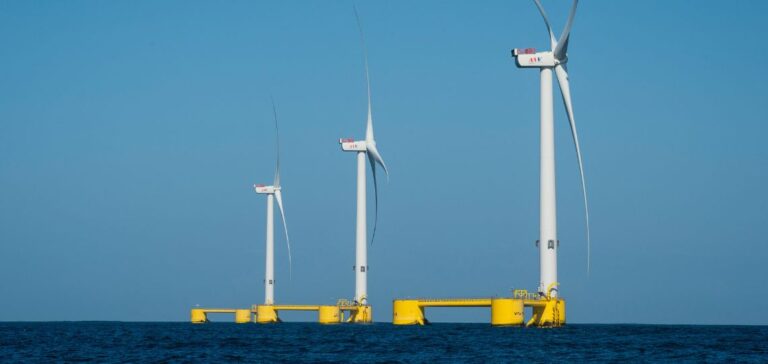The Bureau of Ocean Energy Management (BOEM) has officially awarded the State of Maine a research concession to explore the potential of floating wind energy.
This initiative, covering an area of almost 15,000 acres 28 nautical miles offshore, represents a strategic step forward for the development of this technology on the U.S. continental shelf.
The project is distinguished by its focus on scientific and technical research, aimed at assessing the implications of this innovative technology in terms of operations and impact on the marine ecosystem.
The concession, the first of its kind in the USA, will enable in-depth studies to be carried out into the interactions between floating wind turbines and traditional maritime activities, such as fishing.
At the same time, it aims to identify the technical challenges associated with the installation and operation of wind farms in deep waters, a hitherto unexploited area rich in energy potential.
The aim is to develop a detailed understanding of the issues involved in floating wind farms, in order to prepare the ground for future commercial installations.
A key step in US energy strategy
Maine is in a unique position to test and develop floating wind technologies, thanks to its favorable geographical features and a strong political will to diversify energy sources.
This research project is the result of close collaboration between BOEM and the Governor’s Energy Office, ensuring that local and national interests are taken into account in the planning and execution of research activities. The Biden-Harris administration has already approved nine commercial offshore wind projects, representing a cumulative capacity of over 13 gigawatts.
However, floating wind offers distinct opportunities, not least the possibility of deploying turbines in deeper sea areas, where wind resources are more stable and powerful.
With this concession, Maine is at the forefront of this technological evolution, paving the way for more efficient exploitation of offshore energy resources.
Challenges and prospects for the sector
The awarding of this concession marks an important milestone not only for Maine, but for the US energy sector as a whole.
The studies to be carried out under this concession will provide invaluable data to guide future decisions on the installation of floating wind farms, both technically and environmentally.
Players in the energy sector will need to pay particular attention to the results of this research, which could well redefine standards and practices in the offshore wind energy field.
The project also has an important economic component, with potential implications for the local supply chain and the creation of specialized jobs in the construction and maintenance of the installations.
However, before any commercialization can be envisaged, operators will have to overcome complex logistical, technological and regulatory challenges, all of which will be at the heart of studies led by Maine under the supervision of BOEM.






















